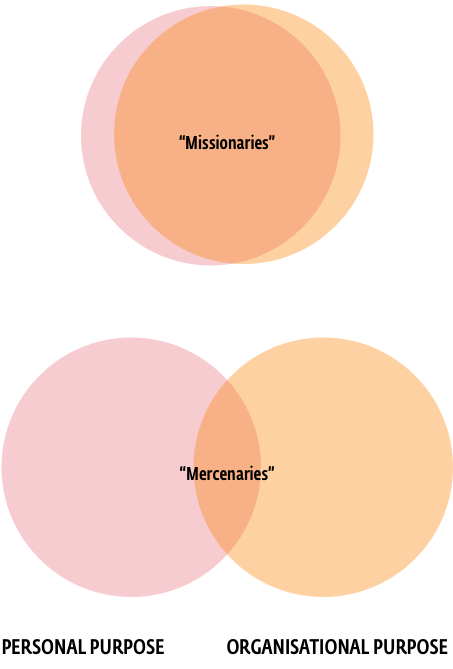Enjoyed this from Studio D’s Jan, who is currently researching his next book on human and organisational sensemaking. Sharing his work in progress here, which was shared on Radar, the Studio D newsletter.
We’ve covered a lot of ground to exploring the role of an organisational purpose to inspire employees and to provide meaning to their day to day work.
For now, we’ll broadly define organisational purpose as encapsulating its:
- mission, why it exists
- vision, what it wants to be
- core values, what its employees believe in.
Of course there are plenty of reasons why people want to join a company beyond its purpose such as compensation and benefits, flexible working arrangements, training, and career advancement. That said, in a crowded marketplace for talent, purpose is often considered a means to stand out from the competition.
The thinking goes that job candidates attracted by the organisation’s purpose will become employees that integrate well by arriving motivated, and sufficiently aligned to mindset and cultural expectations.
If this is true, then the organisational culture will still evolve, albeit at a slower pace and in different ways than if it did not have a clearly defined or sufficiently aspirational purpose.
In a fast paced operating environment stewarding a slower cultural pace of change makes everything more manageable for most (although definitely not all) employees.
My current research focus is exploring how organisations define their purpose and as an extension, the positive and negative consequences of relying on purpose as filtering mechanism for current and potential-future employees.
One of the strands that I’m attempting to unravel is the language used to define is whether an employee is considered a “good” or “poor” cultural fit. For better or worse, a term that is sometimes used by executives is to make the distinction between missionaries and mercenaries:
Missionaries are aligned to the mission, vision and core values.
Mercenaries are in it for themselves: their compensation, career advancement, adding another line to their resume.

One way we can visualise this, is by highlighting the alignment, or lack of, between personal and organisational puposes.
I’m uncomfortable with this level of reductionism especially when it becomes the default that is reverted to in day-to-day language, but am still aways from proposing alternatives. Pointers to good articles welcome.
